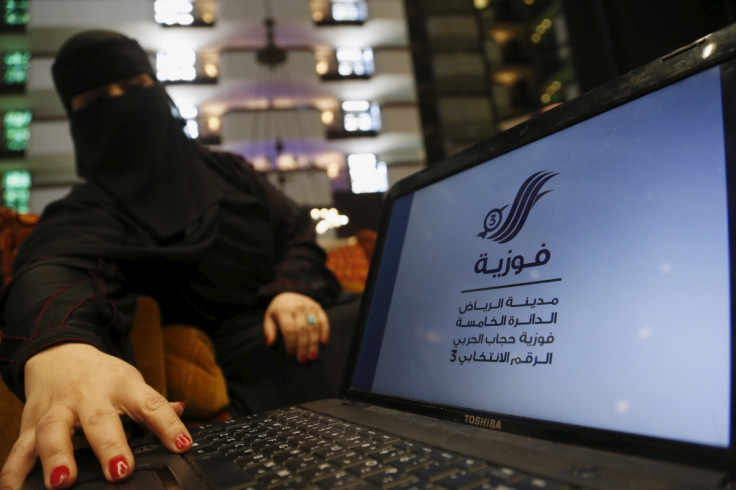Saudi Arabia: Voting begins as women stand as candidates in elections for the first time

Women in Saudi Arabia are standing as candidates for the first time in municipal elections. A total of 978 women registered as candidates, alongside 5,938 men. Around 130,000 women have registered to vote in the elections, while 1.35 million men have registered.
Salma al-Rashed was the first woman to register to vote. "It felt really good," she told the BBC. "Change is a big word but the election is the way to make sure we are really represented."
The polls opened in Riyadh at 8am local time (5am GMT) on Saturday 12 December. Saudi academic and women's rights campaigner Hatoon al-Fassi voted in an almost empty polling station, for women only. "It feels great," she said. "This is a historical moment. I thank God I am living it."
We want to raise awareness. We want to have a voice. We want to speak our minds. We are Saudi women and we will be heard.
— Saudi Women Speak (@SaudiWomenSpeak) October 6, 2012Women voters said registration was hindered by bureaucratic obstacles, a lack of awareness of the process and its significance, and the fact that women could not drive themselves to the voting polls. Polling stations were also segregated on Saturday. As a result, women account for less than 10% of registered voters.
The campaign trial was also segregated by gender: women candidates had to speak behind a partition during campaign appearances or be represented by a man.
Amal Badreldin al-Sawari, a 60-year-old paediatrician said she became a candidate out of patriotism and because Islam gives women rights. "Men and women have equal rights in many things," she said, reciting a relevant verse from the Koran, adding that many people were supportive of her campaign.
"To tell you the truth, I'm not running to win. I think I have done the winning by running."
Saudi's rare elections
Saturday will be only the third time in history that Saudis have gone to the polls. The country – which is an absolute monarchy – did not hold elections in the 40 years between 1965-2005.
Rothna Begum, a Middle East women's rights researcher for Human Rights Watch, told Al Jazeera that women's roles in Saudi politics would still be limited.
"If [the election] does take place, Saudi Arabian women will, for the first time, have gained suffrage. However, municipal councils and the Shura Council have limited powers, and currently there is no female minister in government," Begum said.
Women's rights activists are fighting for other issues in Saudi Arabia, such as the ban on female drivers and the guardianship system, in which male relatives have legal control over many aspects of women's lives. Under the system, women have to obtain their male guardian's permission if they want to study at university, work, travel abroad, or file a lawsuit in a court.
© Copyright IBTimes 2024. All rights reserved.






